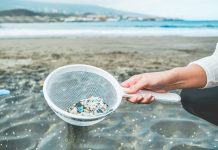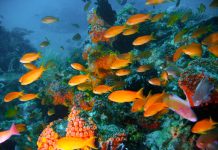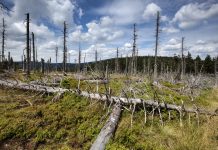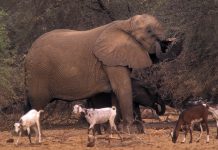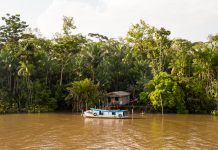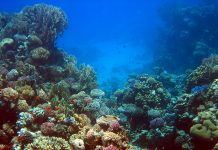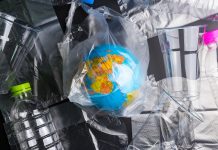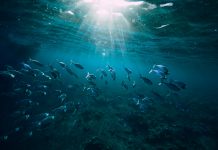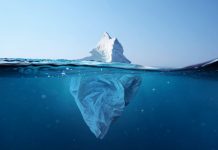Scientists examine the impact of deforestation on tropical governments
Panama and other governments of tropical countries set out to understand how to inhibit deforestation and deliver reforestation tactics following the COP26 conference.
The rapid shrinkage of the Himalayan glaciers
A study has revealed that the renowned Himalayan glaciers have lost over 40% of their area, threatening millions of people in Asia with lack of water availability.
Protecting Europe’s oceans
Open Access Government look ahead to the 2022 priorities of Virginijus Sinkevičius, European Commissioner for Environment, Oceans and Fisheries.
How do you build dialogue with the community?
Following COP26, it is clear that local governments have a huge role to play in policy change and combatting socio-ecological challenges. To work towards global promises, they must listen to their communities, and here, we learn about innovative tools enabling them to do so.
Nurdles: Tiny building blocks of consumer plastics & a growing environmental health threat
Pamela Lein, University of California, Davis, explains nurdles - tiny building blocks of consumer plastics & growing environmental threat
Is it possible to feed the growing population without destroying forests?
Nur Bahar and Terry Sunderland illustrate why it is important to challenge the narrative of ‘food production-at-all-cost’ at the expense of our forests.
Why protecting humans, means protecting animals too
Philip Lymbery, Global CEO of Compassion in World Farming International, explains why protecting humans, means protecting animals too
Heating: Planning our way out of the climate crisis
Grundfos Holding A/S explains the future of heating in Europe, as we plan our way out of the climate crisis
Science-based solutions for climate change and air quality research
Academic experts from the University of Helsinki, Finland, examine the vital work of the Atmosphere and Climate Competence Center (ACCC) Flagship, including climate change and air quality.
Study reveals fish soundscapes across restored coral reefs
On reef restoration projects in Indonesia reviving marine ecosystems, scientists found ‘fish songs’, indicating the ecosystems were coming back to life.
The impact of cooking and cleaning on health
Professor of Indoor Air Chemistry examines exposure to indoor and outdoor pollution, through the impacts of cooking and cleaning on indoor air quality
City & region climate action keeps hope alive for COP26 outcomes
Yunus Arikan, Director of Global Advocacy, Local Governments for Sustainability, tells us that city and region action keeps hope alive for COP26 outcomes
Human activity is the biggest contributor to plant homogenisation
Researchers have found that human activity has the largest impact on plant communities, as seen with climate change, or the introduction of an invasive species.
Human-elephant coexistence part 3: Elephants, wildlife & how they help with climate
Susan Canney, Director of the Mali Elephant Project, WILD Foundation & International Conservation Fund Canada, in the third part of a fascinating discussion about human-elephant coexistence, consider elephants, wildlife and how they help with climate change.
Using local ecological knowledge to monitor Amazon wildlife
An international study demonstrates the importance of local ecological knowledge for conservation in the Amazon, proving to be more accurate than 10 years of conventional scientific studies.
Stem cell-based therapy for corals
Could medical approaches of stem cell-based therapy, be a tool for corals’ resilience to heat stress? Benyamin Rosental, Principal Investigator, Assistant Professor at Ben Gurion University of the Negev in Israel answers the compelling question here.
Repurposing property that is surplus to requirement
Stuart Woolgar, CEO, Global Guardians Management Ltd, explores how repurposing empty buildings, such as office space, will help the property world to become more sustainable.
Transforming plastic use with a circular model
New research provides a model of the global scale of plastic development, tracing where it’s produced, where it ends up, and its environmental impact.
Behavioural adaptations in fish may help them adapt to Ocean warming
Virginia Tech scientists are showing the resilient nature of cold-water fish in the face of climate change and rising ocean temperatures
Identifying microplastics in Antarctic seawater samples
Research has identified how microplastics are being found in the Antarctic, by testing seawater samples they found that paint and varnish are the most prominent source of microplastics in the region's sea.






